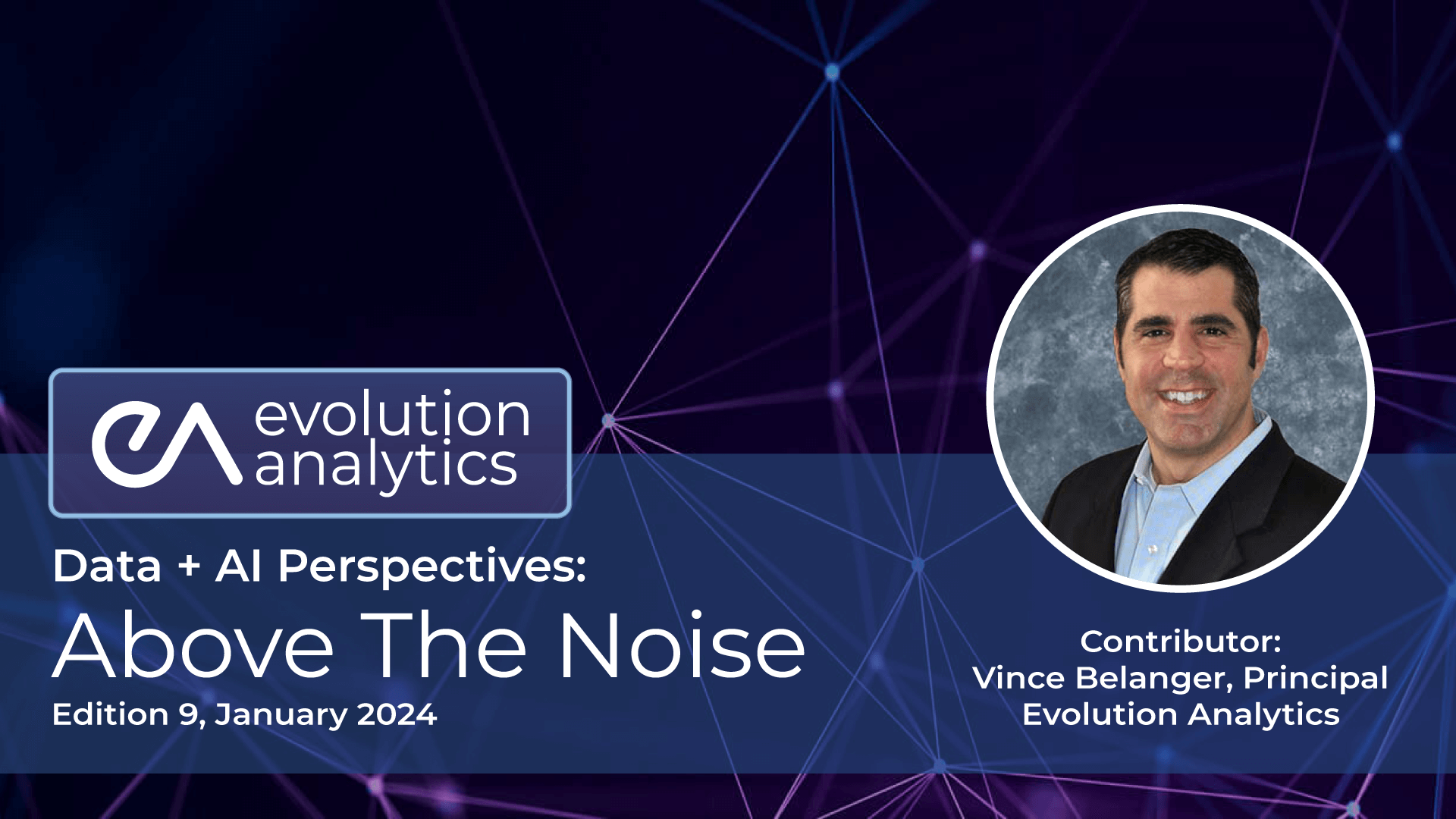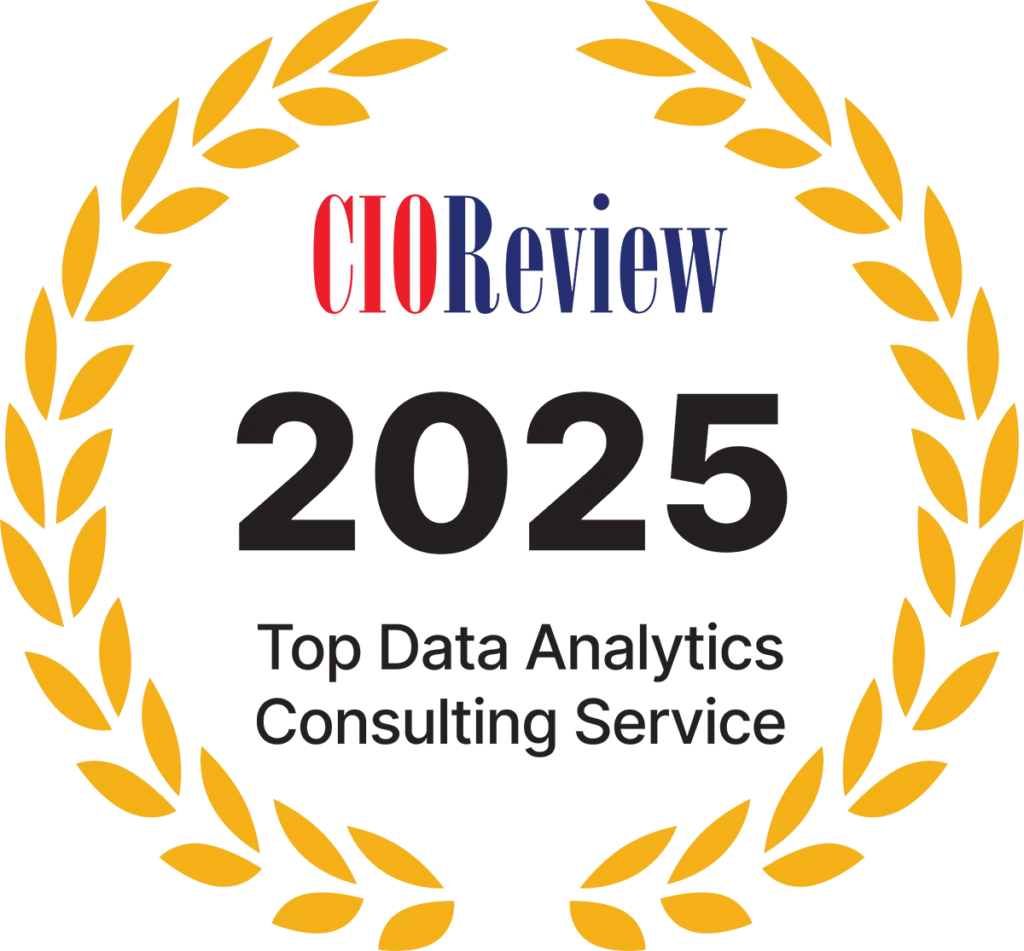Embracing Data Governance: A Roadmap to AI Readiness and Ethical Compliance

Vince Belanger
Principal
Evolution Analytics, LLC.
Posted: January 4, 2024
In my recent conversations with clients, I’ve found myself repeating a crucial message: “STOP looking for the hard ROI and kicking the data governance can down the street. This is imperative for insights, alignment, compliance, and in the advanced cases of data supporting AI initiative ethics.” As a seasoned professional in data and analytics, I’ve observed a common trend where organizations overlook the importance of effective data governance (DG). It’s time to shift our perspective and understand that DG is not just another task—it’s the cornerstone of successful data and analytics strategies, particularly in the realm of AI.
Understanding the Importance of Data Governance
You need to realize that data governance is not about immediate, tangible ROI. It’s about setting the stage for long-term success in your data-driven initiatives. Data governance is the framework that ensures data quality, accuracy, and security. Without it, you’re not just risking project outcomes—you’re potentially jeopardizing your entire AI strategy.
The Ethical Imperative of Data Governance in AI
When you embark on AI initiatives, the stakes are incredibly high. Data governance becomes an ethical imperative. It ensures that the data feeding into your AI systems is accurate, unbiased, and compliant with regulations. Remember, AI systems are only as good as the data they’re built upon. Poor data quality can lead to biased or unethical AI decisions, harming your brand reputation and customer trust.
Building a Data-Driven Culture
You need to foster a culture that appreciates and understands the value of data governance. This means breaking down silos and ensuring that everyone in your organization is on the same page. If your team struggles to agree on basic definitions of customers, orders, products, and key metrics, you’re not ready to leap into AI. Data governance is what helps you build that foundational corporate capability, the muscle you need for successful AI deployment.
Moving Beyond the ROI Mindset
Shift your focus from the immediate ROI of data governance projects. Instead, consider the broader impact of having a well-governed data environment. With effective DG, you’re not just complying with regulations; you’re also positioning your organization to leverage data for strategic decision-making. This shift in perspective is critical for long-term success in the data-driven world.
The Role of Leadership in Data Governance
As a leader in your organization, it’s your responsibility to champion data governance. You need to drive the message home that DG is not a “nice-to-have” but a “must-have” for the future of your business. Your leadership in this area sets the tone for how seriously your organization takes its data responsibilities.
Practical Steps to Implement Effective Data Governance
- Define Clear Data Governance Policies: Start by establishing clear policies and procedures for data management. This includes data quality, access, and security protocols.
- Appoint Data Stewards: Identify key individuals within your organization who will be responsible for overseeing data quality and compliance. These data stewards will be crucial in maintaining the integrity of your data governance program.
- Invest in the Right Tools: Utilize data governance tools that help in managing, monitoring, and ensuring data quality. The right technology can simplify and streamline your DG efforts.
- Educate and Train Your Team: Ensure that all team members understand the importance of data governance. Regular training and education are key to maintaining a data-conscious culture.
- Regularly Review and Update Your DG Policies: Data governance is not a set-it-and-forget-it initiative. Regularly review and update your policies to stay aligned with evolving business needs and regulatory requirements.
The Payoff of Effective Data Governance
The payoff of implementing effective data governance is multifold. Not only does it pave the way for ethical and compliant AI implementations, but it also ensures that your organization is making decisions based on accurate and reliable data. It’s about building a foundation that supports all your data-driven initiatives, now and in the future.
Conclusion
In summary, data governance should no longer be the can that gets kicked down the road. It’s an essential part of your organization’s data strategy, especially in the context of AI and ethical compliance. By embracing data governance, you’re not just safeguarding your data; you’re ensuring the success of your business in the data-driven era. Let’s build this foundational capability together and unlock the true potential of your data and AI initiatives.
About Vince Belanger
As principal at Evolution Analytics, I’ve dedicated my career to helping companies navigate the complexities of digital transformation, using data to craft strategies that turn challenges into triumphs. Visit https://www.evolutionanalytics.com for more information about our data and analytics consulting company. Or feel free to reach out to me on my LinkedIn profile: https://www.linkedin.com/in/vbelanger06/.








